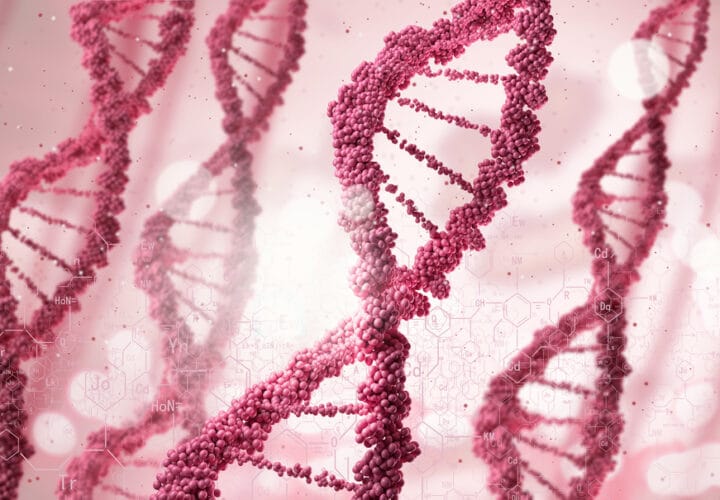Researchers find novel genetic factors that are linked with Alzheimer’s in hopes of tailoring strategies to reduce people’s risk of developing the disease.
Scientists have uncovered three new genes that could potentially be tied to Alzheimer’s after studying the DNA of more than 300,000 people.
Researchers looked at samples from the U.K. Biobank, a database with the complete medical records of over half a million people, including some body scans and brain scans. Because many of the participants in the database are too young to develop Alzheimer’s, scientists used information about their parents to determine genes that might be considered a risk.
We know that ApoE4, a genetic variant considered the biggest risk for Alzheimer’s besides age itself, can increase the risk by between three and twelve-fold, depending on whether you carry one or two copies of the gene. For two copies of ApoE4, the risk is somewhere between eight and 12 times higher than someone who does not carry the ApoE4 gene. And the variation in risk prediction can be chalked up to the fact that we still don’t really know all of the genetic factors that contribute to Alzheimer’s.
Research: Does ApoE4 Mean
Alzheimer’s? Not For Everyone
But this study was able to track genetic patterns in people with a parent who had the disease. They combined the results of their analysis with another genetic study of 70,000 people with and without Alzheimer’s. They found three new genetic factors that seem to contribute to the likelihood of developing the disease, along with confirming 30 others that have been previously pointed out.
By analyzing how certain genes can play a tiny role in developing Alzheimer’s, scientists are able to paint a personalized picture of a person’s risk of developing the disease. And they could use that information to develop a precise plan for reducing that risk.
“New genetic discoveries can provide vital clues to the biological processes involved in Alzheimer’s, but our genetic makeup is not the only factor that affects our risk of the disease,” said Dr. Riccardo Marioni, one of the lead researchers from the University of Edinburgh. “We are now working to combine genetic data and information about people’s lifestyle to produce more comprehensive and personalized picture of Alzheimer’s risk. Understanding how genetic and lifestyle factors interact to affect our overall risk could lead to more targeted risk reduction strategies and pave the way to precision medicine in Alzheimer’s disease.”
“New genetic discoveries can provide vital clues
to the biological processes involved in Alzheimer’s,
but our genetic makeup is not the only
factor that affects our risk of the disease.”
Two of the genes that researchers isolated as risk factors have been associated with other diseases, according to the researchers.
“Interestingly, two of these genes are targeted by drugs that are used to treat other conditions, signaling a potential direction for research into new Alzheimer’s treatments,” said Sara Imarisio, Head of Research at Alzheimer’s Research UK.
“Interestingly, two of these genes are targeted by drugs
that are used to treat other conditions, signaling a potential
direction for research into new Alzheimer’s treatments.”
One of the genes is associated with blood-clotting disorders and is a target for the drug warfarin, an anticoagulant that is used to prevent strokes. The other is a gene associated with hypertension, targeted by a class of drugs called ACE-inhibitors that make blood vessels relax.
“The next step will be for molecular scientists to assess how these genes might contribute to the development of Alzheimer’s and fit in to the existing picture of the disease,” said Imarisio.
This study was published in the journal Translational Psychiatry.


My aunt passed with Parkinson’s and my mom passed with Alzheimer’s. I am 73, and I question if I have an increased risk of developing either of those. Is there anything that you would advise me to do now?
hi the distributibution of the APOE GENES from birth is:
8% APOE2,78%APOE 3, 14%APOE so the latter affects so many thousands.What can done to change it into APOE 3 or TWO
And the three genes are…??
Doesn’t list the 3 genes or the ” They found three new genetic factors that seem to contribute to the likelihood of developing the disease, along with confirming 30 others that have been previously pointed out.
I read the article to find out. Then they don’t say?